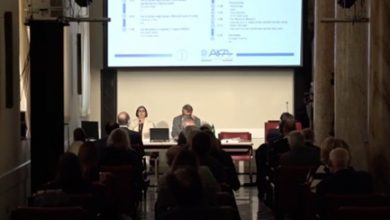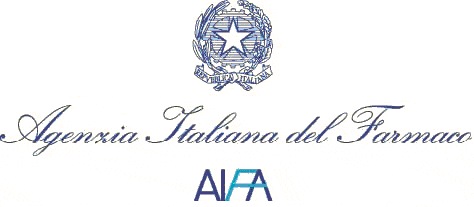
Because the parliamentarians hide behind an indefinite name that evokes distant and elusive monsters to discharge their responsibilities. In fact, rules that make the action of lobbyists transparent cannot be approved because otherwise the altars would fall and what everyone knows would be discovered: that is, where politics is fragile and clear indications are lacking, parliamentarians feel free to support the lobbies closest to them. The absence of a law on lobbies prevents the voter from understanding what is really behind the amendment presented by the single deputy, what interests and who drafted it; prevents knowing who pays and for what.
Of Pier Luigi Petrillo | 01 April 2016 | The paper
 Here we go again: it's the lobbies' fault. On the Sheet Senator Linda Lanzillotta (Pd) has at least admitted that the so-called lobbies will have slowed down the Competition law bill, which has been blocked for a year in Parliament, but the phlegm of politics has also played a role. Actually, I don't know that the lobbies occupied Parliament, replaced the majority deputies and voted amendments in their favour. Instead, I understand that it was the majority deputies who presented amendments in favor of certain lobbies and voted for them by majority (precisely).
Here we go again: it's the lobbies' fault. On the Sheet Senator Linda Lanzillotta (Pd) has at least admitted that the so-called lobbies will have slowed down the Competition law bill, which has been blocked for a year in Parliament, but the phlegm of politics has also played a role. Actually, I don't know that the lobbies occupied Parliament, replaced the majority deputies and voted amendments in their favour. Instead, I understand that it was the majority deputies who presented amendments in favor of certain lobbies and voted for them by majority (precisely).
The draft law on Competition is not the result of an academic lucubration but the natural consequence, in a democratic system, of the precise political choice of the majority that supports the government; a choice aimed at supporting certain orders, corporations (even micro ones), productive sectors of the country in a situation of substantial monopoly. Mind you, these are legitimate choices that are not disputed here. What is disputed is that, as usual, we hide behind a finger and that finger has an indefinite name that evokes distant and elusive monsters: lobbies, indeed! It is the lobbies' fault if liberalizations are not carried out; the fault of the lobbies if the country stagnates in nineteenth-century swamps; it is the lobbies that prevent structural reforms.
The great merit of the Renzi government was to demonstrate that this is not the case; on the contrary, Renzi has shown that if there is the political will it is possible to overcome any lobby and really do what he promised to do. The Prime Minister has achieved what he wanted in matters of labour, banks, insurance, even constitutional and electoral reforms: he has won over fearsome lobbies that were unattainable until recently, such as the trade unions (or constitutional law professors, a category which I belong). The majority in Parliament has shown that it can approve laws in a few weeks that are very opposed by some of these lobbies. Therefore, there is only one datum: in this case and in matters of competition and liberalization, the majority has decided which side to take, has expressly decided to indulge certain lobbies (those of immobilism: from the usual taxi drivers to confederate hoteliers) against others (those of consumers, for example). In order not to admit this fact, so evident that any controversy seems really cloying on the Giavazzi article in the Corriere of a few days ago, we hide behind the usual screen: the lobbies, these unknown, ugly, dirty and bad ones.
 And to keep alive the screen behind which politics hides, no regulation of lobbying is approved: precisely on the occasion of the Competition bill, some senators tried to propose some legislation but were promptly stopped. In fact, rules that make the action of lobbyists transparent cannot be approved because otherwise the altars would fall and what everyone knows would be discovered: that is, where politics is fragile and clear indications are lacking, parliamentarians feel free to support the lobbies closest to them (perhaps because they finance their electoral campaign) because they know that, in the darkness that surrounds the world of lobbies, it will never be their fault, they will never have to account for their choices to any voter (the British would say accountability) . The absence of a law on lobbies prevents the voter from understanding what is really behind the amendment presented by the single deputy, what interests and who drafted it; prevents knowing who pays and for what.
And to keep alive the screen behind which politics hides, no regulation of lobbying is approved: precisely on the occasion of the Competition bill, some senators tried to propose some legislation but were promptly stopped. In fact, rules that make the action of lobbyists transparent cannot be approved because otherwise the altars would fall and what everyone knows would be discovered: that is, where politics is fragile and clear indications are lacking, parliamentarians feel free to support the lobbies closest to them (perhaps because they finance their electoral campaign) because they know that, in the darkness that surrounds the world of lobbies, it will never be their fault, they will never have to account for their choices to any voter (the British would say accountability) . The absence of a law on lobbies prevents the voter from understanding what is really behind the amendment presented by the single deputy, what interests and who drafted it; prevents knowing who pays and for what.
But Renzi could strike a blow and demand an account of some votes in the Senate that scuttled the competition bill with the favorable opinion of the government representative, to amaze everyone with one of his strokes of genius: presenting a maxi amendment that completely replaces this fetish of law and, in one fell swoop, liberalize sectors blocked for centuries and thus dissolve corporations so old as to be overtaken by facts (as well as by the market). In any case, in a democratic system like ours, it will never be the fault of the lobbies but of the (weak, fragile, dominated) politics that supports them.
by Pier Luigi Petrillo, Professor of Lobbying Theory and Techniques, Luiss
Related news: How the DdL establishing the Register of ISF was scuttled by the offender Tomassini (NB: Parliament was dissolved and sending the bill back to the Assembly meant burying it since the Assembly was no longer there. Tomassini the unpresentable)
Big pharma: the exercise of the power of an industry
The Transparency Facade: pharma industry lobbying at the European Commission
New Research Reveals Major Pharmaceutical & Financial Industry Lobbying Push for TTIP
Cricket. Renzi government friend of drug lobbies
Class C drugs, Free pharmacists: "the Minister goes to dinner with the lobby"
Pharmaceutical lobbies are in excellent health
Lobby, Italy in the transparency classification fund: "There is no law that regulates them"





